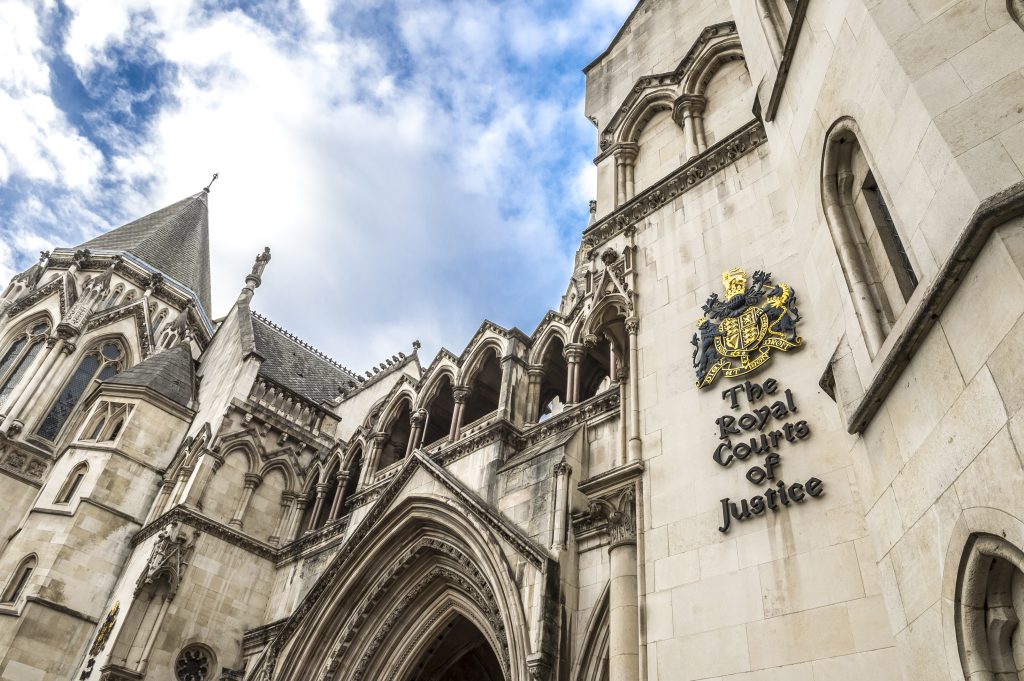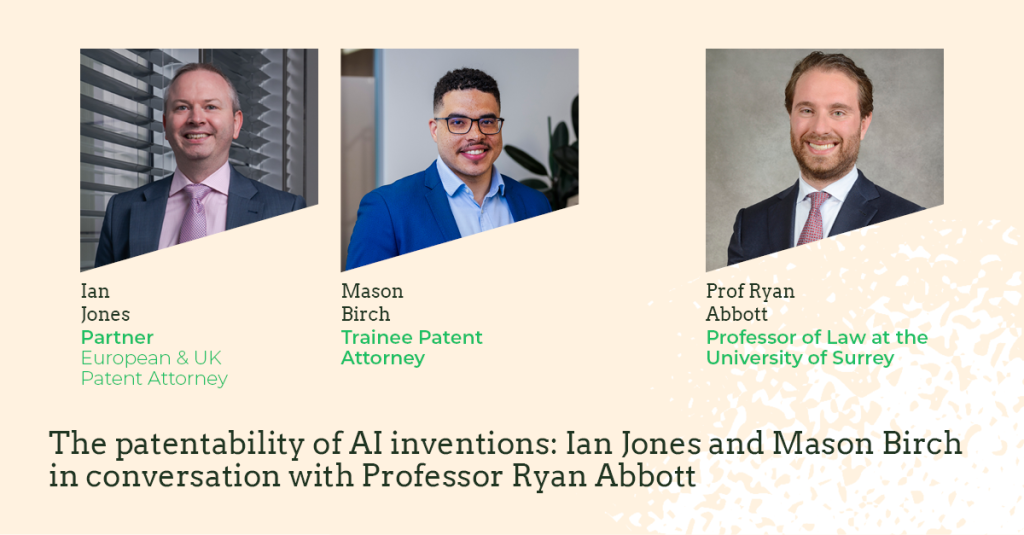
In the competitive and ever-changing landscape that is venture capitalism, innovation reigns supreme, and investing in the most promising ideas is often key to realising financial success. Yet, identifying ideas that have lucrative potential is not always straightforward. Patent attorneys and other intellectual property (IP) lawyers should act as allies for venture capitalists (VCs) in their pursuit of financial gain by marrying market experience with legal know-how. While IP may represent just a single piece of the puzzle for VCs, a valuable IP portfolio can make all the difference when it comes to worthwhile returns. By leveraging the expertise of patent attorneys, VCs develop enhanced investment strategies with mitigated risks and, ultimately, maximised returns.
There are two important processes that can help to alleviate risks and boost returns associated with IP: due diligence and freedom to operate (FTO) analysis.
Due diligence
IP portfolios are not immune to risk. Even portfolios that seem robust on the surface can have hidden flaws. Therefore, to reduce potential losses in an investment deal, IP portfolios should be scrutinised during due diligence to identify pitfalls and, where possible, to develop solutions to these pitfalls.
Fundamentally, IP due diligence looks at the global coverage, age, scope and enforceability of a portfolio and whether there are likely to be challenges to any particular patent. However, all too common is the production of a due diligence report that regurgitates basic information with little to no commercial practicability or meaningfulness. What is often missed, crucially, is the formation of a deeper understanding of a company’s commercial goals.
In this sense, good IP due diligence should be conducted with a mind to whether the portfolio actually protects what is important to the company. For example, a company may intend to make and sell a particular product. It is not uncommon for a patent to inadvertently cover a method of using the product, but not the product itself, and this kind of patent would provide little defence against competitors who are making and selling the product. Instead, it would primarily allow a company to sue users of the method – i.e., their potential customers. Therefore, a patent may appear to protect a product yet fail to confer any meaningful protection for the company. In the worst case, this can dramatically cut the value of the IP portfolio. Therefore, analysing the scope of what is actually protected, together with the goals of the company, is key in detecting issues and dealing with them accordingly.
Accordingly, it is important that key weaknesses are presented in a clear and actionable way. Often, the weaknesses in a portfolio are obscured by the overuse of legal jargon, whereas effective due diligence highlights issues in an understandable way, getting straight to the heart of risks posed to the company and their goals. This allows VCs to quickly digest commercially meaningful information and develop a clear picture of a company’s IP position.
By identifying pitfalls, steps can be taken to develop the portfolio with an eye to strengthening these limitations. For example, securing proper protection for a product that is important to the company or layering protection to deter competitors. This also ensures that critical risks are not missed – something that can otherwise have serious implications for the value of the investment.
Overall, the importance of due diligence cannot be understated when it comes to risk mitigation. However, the benefits of due diligence are only felt when the analysis takes an immediately relevant and readily understandable form. At GJE, we recognise the need for translating legal concepts into plain English, which is reflected by our wealth of expertise in working with VCs to identify and protect valuable IP.
Freedom to operate
While due diligence may indicate the strength of a portfolio, without an FTO analysis, it is not always clear what a company is and isn’t free to do without infringing competitor IP. As such, a VC may wish for a company to undertake an FTO analysis to ensure that the commercial strategy is not blocked. However, there are various factors that should be accounted for in the decision to carry out an FTO analysis.
An FTO analysis can give the green light (or not) for a company to act on their commercial goals and can highlight infringement issues that could impede an otherwise IP-rich company from commercialising a product. The stage of the investee company is an important factor in the decision to undertake an FTO analysis. For example, an FTO analysis performed in the early stages of product development could give a company a chance to adapt its commercial (and IP) strategy according to the outcome of the FTO analysis. Conversely, investments in later-stage companies with clearly mapped out commercial goals may warrant an FTO analysis to ensure that the commercial strategy is viable and to avoid the company potentially being sued for IP infringement. Costs are also a major consideration for an FTO analysis. For instance, an FTO analysis may be more appropriate for a large investment round where costs are less of a concern. In addition, FTO opinions can be useful for identifying potential licensing agreements and collaborations between companies.
However, despite the benefits, a full FTO analysis may not always be advisable. For instance, if a company has yet to find product-market fit, it may have less-defined commercial goals, which may lead to an FTO analysis being unworkable or lacking in focus. Further, a full FTO analysis can be extremely costly. While this cost may be appropriate ahead of a larger investment, it is often not the best use of funding for smaller investments, especially where the VC is comfortable with a higher degree of risk.
Accordingly, patent attorneys should advise on the requirements for, and potential benefits of, an FTO analysis. However, much like with due diligence, developing a useful insight into a company’s commercial goals before performing an FTO analysis can be forgotten. This can lead to ill-informed decision-making and improper allocation of funds, especially given the potential cost of a complex FTO analysis. At GJE, we are well-versed in advising on the necessity of an FTO analysis, as well as conducting these in combination with due diligence analysis in a manner that is tailored to the interests of the VC and the specifics of the investment deal. Again, clearly communicating the potential risks of infringement is central to our no-fuss concept when it comes to VCs.
Partnering for prosperity
Evidently, building a strong commercial understanding of a company has the potential to significantly enhance the benefits of due diligence and FTO analysis. Further, once a patent attorney has built a relationship with a VC, the approach to due diligence and FTO analyses can be tailored to that VC. A strategic partnership between a patent attorney and a VC is therefore invaluable in developing a bespoke understanding not only of a company, but also of a VC. In turn, long-term partnerships allow this expertise to grow, over time leading to consistent and well-informed investment strategies, no matter the company at hand.
Once a due diligence or FTO analysis has been carried out and a deal executed, patent attorneys and VCs should continue their collaboration to ensure that a company’s portfolio is appropriately bolstered and to explore IP monetisation strategies for the company. This can involve guiding IP strategy, capturing new patentable inventions, identifying licensing opportunities and securing favourable licensing terms to ensure that financial benefits to the company, and ultimately the VC, are maximised.
Partnerships between patent attorneys and VCs are a strategic tool that can be crucial in consistently realising financial returns. Such a relationship is not merely a transactional move but a dynamic collaboration. In forming a mutually beneficial working relationship with a VC, patent attorneys should enhance their distinct perception of a company’s commercial aims and, indeed, the interests of the VC. At GJE, our ability to gain an individual awareness of a client’s specific needs has seen us collaborate with several VCs to guide the investment process as a company’s ambitions change and grow over time.
Ultimately, IP is a crucial component of a company’s value proposition. Maximising the value of IP by identifying and appropriately managing risks can ensure the long-term success and profitability of a company. A well-planned and ongoing IP strategy can assist a company in maximising the value of its IP, therefore creating lower risk and higher reward opportunities for VCs. Due diligence and FTO analyses are important for highlighting potential pitfalls and should be done in a precise and relatable manner tailored to the needs of each client. Central to this concept is the formation of a seamless partnership between patent attorney and VC, which can underpin the success of an investment deal and the profitability of investee companies.
If you would like to unlock the monetary potential of IP while mitigating the associated risks in your investment deals, please find my contact details on my web profile here or contact us at gje@gje.com.





